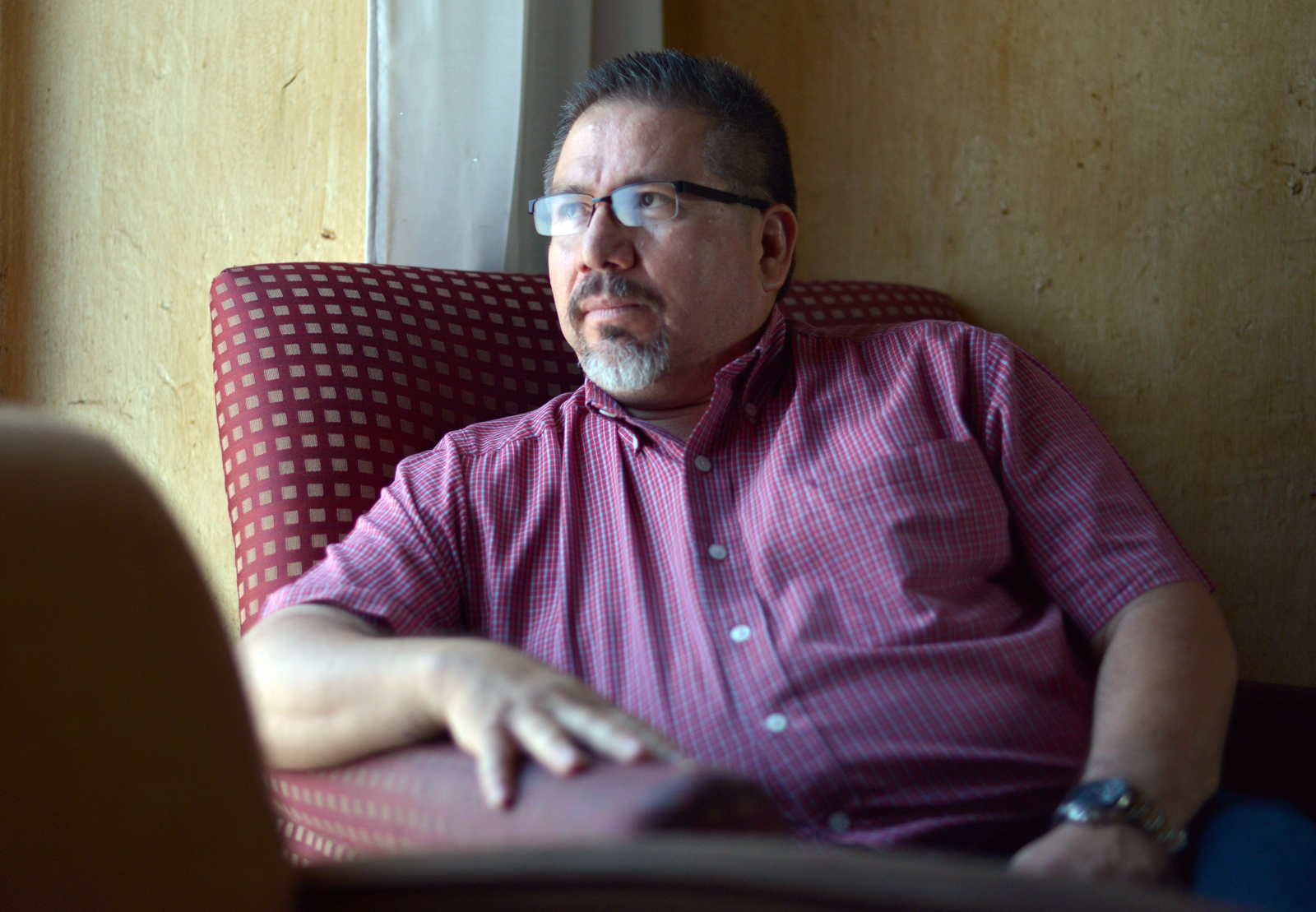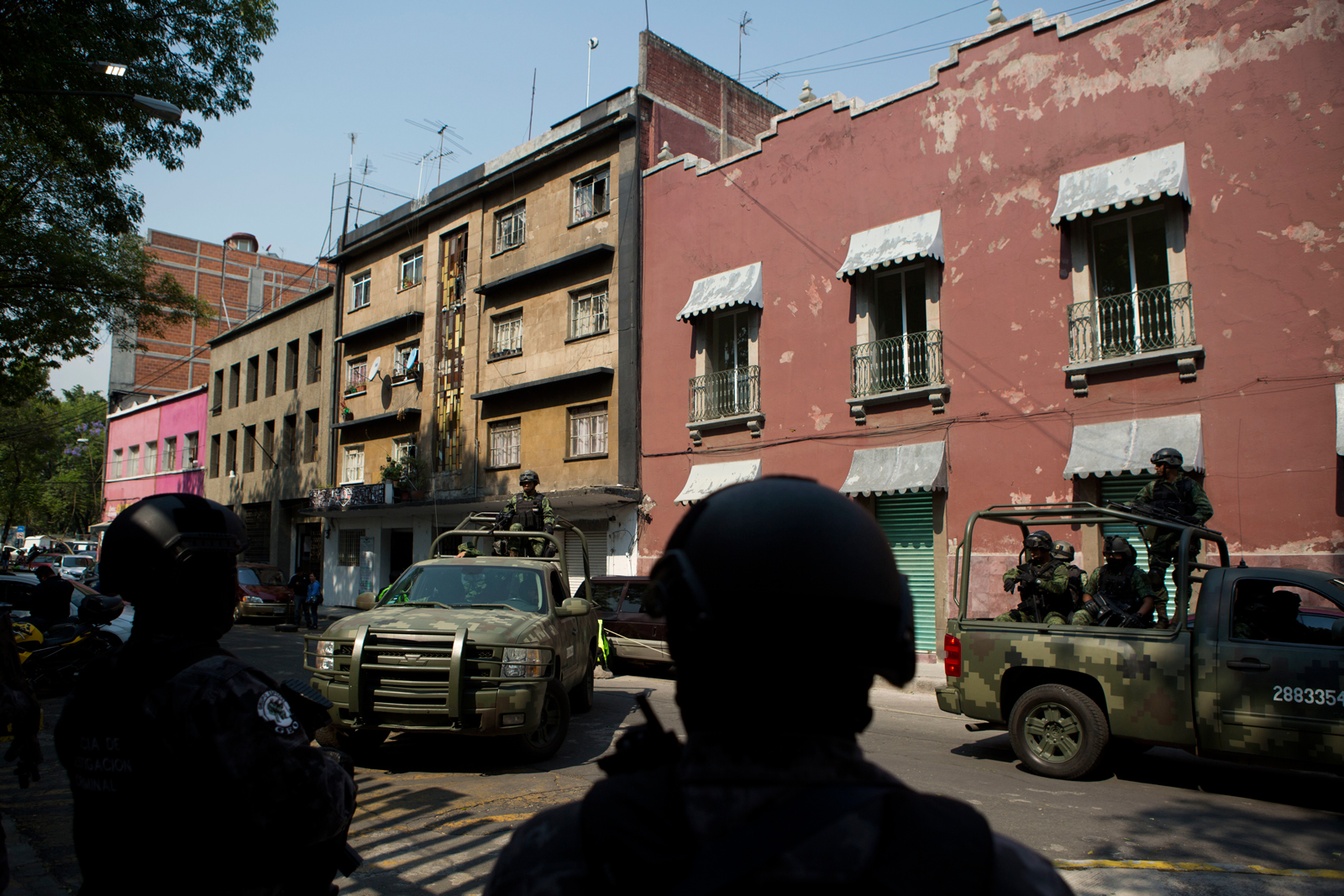Yet another journalist has been murdered in Mexico. It was the usual pattern: Javier Valdez, fifty, wrote a drug story, revealed too much information, said something someone did not want said, and was killed at noon on a busy street near his place of work. Six other journalists, none of them quite as prominent as Javier, have been killed in drug-infested cities since the year began, but because he was a friend of mine the details matter more to me this time. On reflection, I was grateful that, unlike many of the more than one hundred reporters killed in Mexico over the last quarter century, he was not abducted, tortured for hours or days, maimed, dismembered, hung lifeless from an overpass for all to see.
No doubt Valdez owed his comparatively charitable execution—he was merely pulled from his car and shot twelve times—to his prominence: he had received a Maria Moors Cabot award from Columbia University and the Courage Award from the Committee to Protect Journalists, published seven well-received books about the poisonous world he lived in, emerged as something of a hero for his younger colleagues, traveled, and talked endlessly about the fact that when a reporter was killed no one showed up at the protest marches except other journalists—no one seemed to think that it was important to have a free or unintimidated press. Since the vast majority of the reporters who have been murdered since the start of the drug wars work anonymously for tiny provincial papers, it has generally been assumed that someone like Javier Valdez would be safe. In fact, he survived for decades in the motherland of the drug trade, the northern state of Sinaloa. Why then was he finally not allowed to live?
Valdez grew up in one of the funkier barrios of Culiacán, the state capital of Sinaloa. Like most Mexican reporters, particularly in the provinces, he had clawed his way out of poverty and into a career. After graduating from a local university with a degree in sociology, he and Griselda, his new bride, found work as copy editors at a television station. This was thirty years ago, at the start of Sinaloa’s second drug boom, the one that transformed the state from a simple marijuana producer into a major intermediary in the world cocaine trade and, subsequently, the world’s second-largest heroin producer and exporter.
Javier was riveted by the story. Who wouldn’t be? Beyond Culiacán, entire campesino communities were going through ridiculous economic booms and then surviving an onslaught of violent, unfocused, useless government repression. Humble campesinos who barely knew how to sign their names were rising to legendary heights, and an entire folk culture—the narcocultura—was taking shape around them. It was a great story, and it was all about the barrios Javier had grown up in, the kids he had played with, the families and society whose destruction he was witnessing. Plus, the only way he knew to cure the hemorrhaging pain it caused him to see his homeland destroyed was to write about it. In 2003, having already made a name for himself as a reporter for news organizations in Sinaloa, he and a group of colleagues founded a newspaper in Culiacán, called it Riodoce, and gradually invented a kind of crime coverage radically different from provincial journals’ standard scandal-sheet news-of-the-moment.
I met Javier five years later, on my first reporting trip to Culiacán. He swore like a lifer, had a rough face and a body like a Mexican bodyguard, paunchy and hard. When he smiled his face draped in folds. Understandably, he was paranoid for the first five minutes of any encounter with a stranger, but in my case he beamed and relaxed when I asked if he had thought of collecting his short weekly columns for Riodoce into a book. As it turned out, he already had, but his most representative writing was still a work in progress. He was just refining the style that would serve him well over the course of countless Riodoce columns and four more books; detectivesque, unafraid of clichés, and sentimental, his voice was new to Mexican journalism and ideally suited to a broad audience. And what that voice told was a revelation. Here is my lightly edited translation of the column that ran on the morning of the day he was killed:
His uncle couldn’t put up with him any more. He was the shame of the family. So he decided to check him into a rehab center. He called someone and the ‘flier’ came right away: a windowless van with seven youths who kicked and shoved him to the ground, tied his hands and arms, hauled him into the van and took him away.
When they arrived they hit him some more. Someone who seemed to be in charge strolled up. Well dressed, tall, deep-voiced. Everyone stopped when he approached, almost as if saluting him. Blackball, he said. And they all started the beating again. This time they split his head open and cut his back, cracked his collarbone. He lay there, flat on the ground. They gave him paracetamol and two days later they shouted get up, asshole. Speed it up, this isn’t a hotel.
They shook him, gave him some powder, and he came to. Come on, we have to pick up two other new ones in the flier. That’s what the Blackball was, and now it was his turn to inflict it on others. If not, they would apply it to him again.
He kicked and punched with the best of them and that’s how he managed to get invited to the parties. A superior level. Beer, grass and coke. Women were there for them too. They could dance and get high and then take them without asking for permission. There were other prizes waiting for him. He qualified for them with Blackballs. With yessirs to the boss, who was el licenciado [a Mexican honorific akin to the Italian dottore]. They taught him to become a criminal and smuggle drugs. His nickname was el demonio. When his uncle went to inquire about him they told him he was much better. But he didn’t get to see him. Where is he. Well, he went to buy food and ask for donations at stoplights. But he’s doing great, soon he’ll be completely recovered. His uncle left, glad for the news but not quite convinced: not getting to see him left a bitter taste in his mouth.
No one like him. The licenciado would say bring me el demonio and they would take him into the presence. He was good at hitting and following orders. El demonio would show up and slambang. The victim wouldn’t be able to move for days. A prize for him. He knew they’d give him any drug he wanted, and also the female interns in the next ward. He lost his way in the dark clouds of the underworld. He smiled and drooled. And that’s how they found him, sprawled on the floor, with his mouth full of gummy stuff. When they went to fetch him for another Blackball the licenciado said too bad. He was my favorite. And then he shouted, Blackball.
Over the years his sketches filled in a world no one else outside the life had access to or could put into words. Thanks to this one, for example, his readers might be able to understand why a few years ago gunmen systematically raided the rehab centers in Tijuana and other towns along the border, killing some inmates and taking others away. They could speculate whether el licenciado was El Licenciado, otherwise known as Dámaso López Núñez, the former lawyer to Joaquin (“Chapo”) Guzmán, now engaged in an increasingly bloody war with Guzmán’s sons for control of the Guzmán drug empire. For clueless reporters from outside the life, like myself, Javier was endlessly generous with contacts, anecdotes, sources, tips, invitations to dinner, but it felt like we were in kindergarten, while Javier was poking around in the graduate chemistry lab, trying to find the secret formula before the evil professor realized that someone had been tampering with the chromatograph.
Advertisement
“He was the most imperfect of men,” Griselda, his wife, said at the funeral. “But he had a heart as big as the universe.” He caroused too much, he drank too much, or maybe he drank just the right amount to survive the tension of negotiating what he could and couldn’t say about the deadly currents and shifting whirlpools of the Sinaloa drug world. His courage was always incomprehensible to me. Beginning in February he started to write frequently about El Licenciado, in sketches like the one above, and also parallel, deeply and anonymously sourced news stories for Riodoce and a Mexico City paper, La Jornada. The threats he was used to getting became more frequent and scary. On the day he was killed Javier had just come from a meeting with the Riodoce staff about his security situation; he should leave Sinaloa, at least for a while, everyone agreed. He was intercepted by gunmen on his way home.




